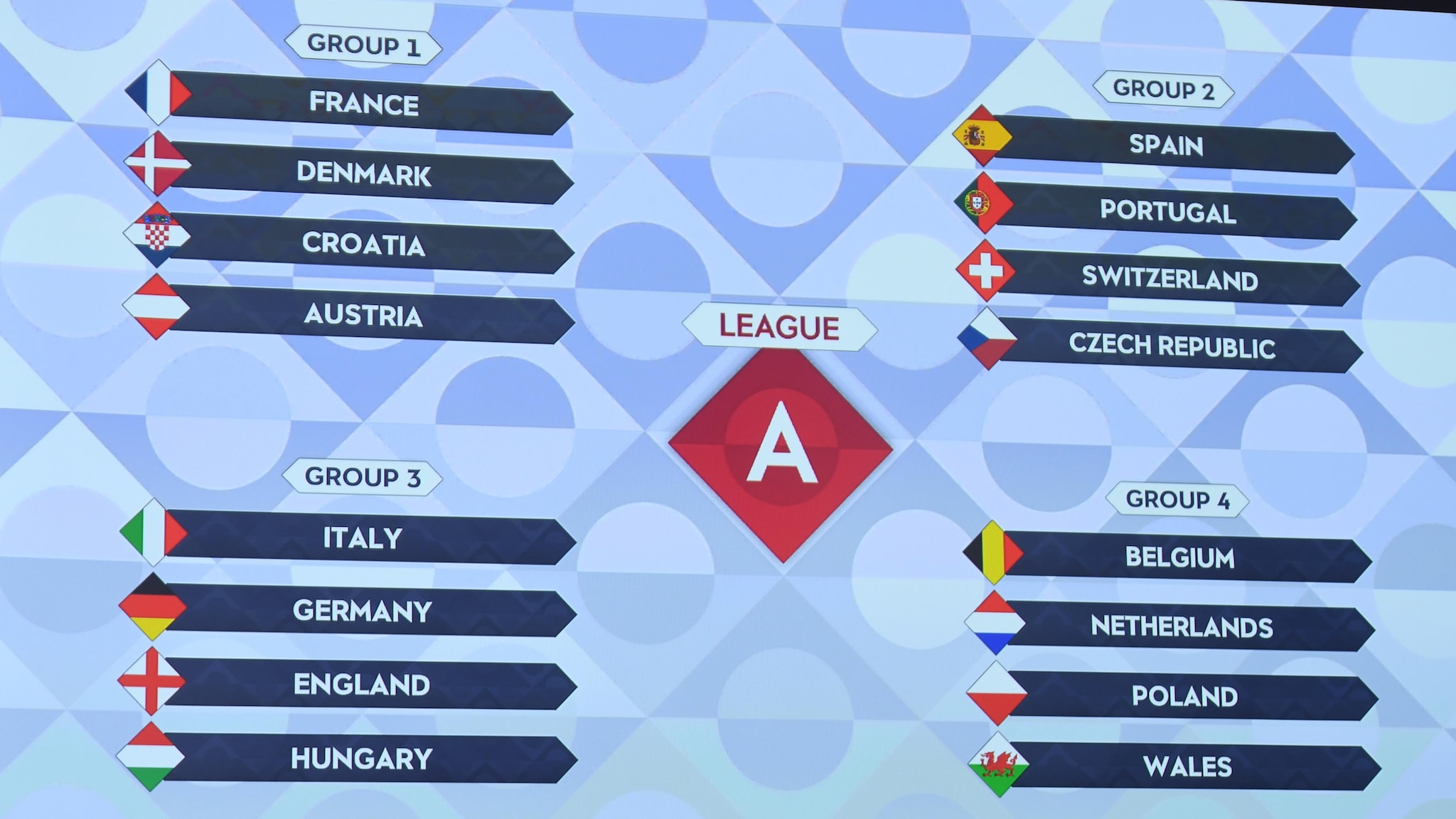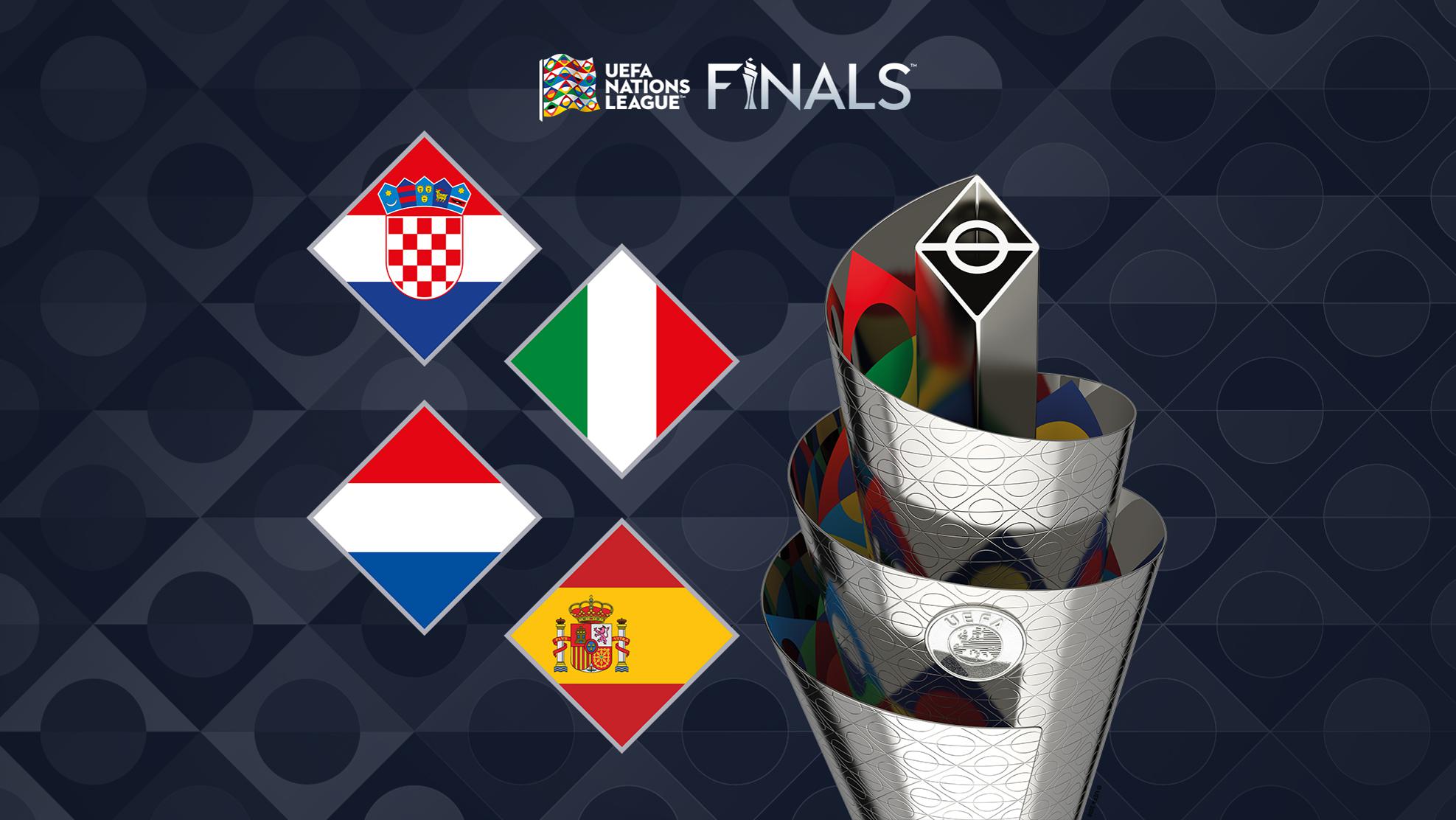Nations League Overview

The UEFA Nations League is an international association football competition contested by the senior men’s national teams of the 55 member associations of UEFA. The competition was established in 2018 to replace international friendly matches and provide more competitive matches for national teams. The tournament is held every two years, with the first edition taking place in 2018-19.
Nations League, a relatively new tournament that has quickly gained popularity, serves as a pathway to the prestigious UEFA European Championship. This biennial competition brings together the top European nations, offering a thrilling showcase of soccer excellence. The Nations League, in turn, provides opportunities for smaller nations to compete against their larger counterparts, fostering growth and development within the sport.
The Nations League is divided into four divisions, with each division containing 16 teams. The teams are ranked based on their UEFA coefficient, which is calculated using the results of their matches in the previous five years. The teams in each division are then drawn into four groups of four teams. The winners of each group are promoted to the next division, while the bottom team in each group is relegated to the next division.
The Nations League, a prestigious international football tournament, showcases the finest talents from around the globe. Among them shines Sasha Colby , a captivating drag performer who has taken the world by storm with her infectious energy and stunning performances.
As the Nations League unfolds, we are reminded of the diverse talents that unite nations, inspiring us to celebrate both athleticism and artistry on a grand stage.
Format
The Nations League is played in a round-robin format, with each team playing two matches against each other team in their group. The matches are played over six matchdays, with two matchdays in September, October, and November. The winners of each group are promoted to the next division, while the bottom team in each group is relegated to the next division.
The UEFA Nations League, a biennial international football competition involving the senior men’s national teams of UEFA member associations, has concluded its group stage. The focus now shifts to the UEFA Euro 2024 qualifying group stage, where the top two teams from each group will qualify directly for the tournament.
The latest standings for Group B of the Euro 2024 qualifiers can be found here. As the Nations League resumes in March 2024, the results of the Euro 2024 qualifiers will have a significant impact on the seedings for the Nations League draw.
Promotion and Relegation
The promotion and relegation system in the Nations League is based on the UEFA coefficient. The teams are ranked based on their UEFA coefficient, which is calculated using the results of their matches in the previous five years. The teams in each division are then drawn into four groups of four teams. The winners of each group are promoted to the next division, while the bottom team in each group is relegated to the next division.
Team Performance and Rankings

The UEFA Nations League has provided a platform for national teams to showcase their abilities and compete against each other in a competitive environment. The tournament has seen some impressive performances from various teams, while others have struggled to make an impact.
In this section, we will analyze the performance of different national teams in the Nations League, discuss their strengths and weaknesses, and provide rankings based on their performance.
Strengths and Weaknesses
Each team has its own unique strengths and weaknesses. For example, Spain has consistently displayed strong possession-based play and technical ability, while England has relied on their physicality and set-piece prowess. Italy, on the other hand, has shown resilience and defensive solidity, while France has boasted a wealth of attacking talent.
Rankings, Nations league
Based on their performance in the Nations League, the teams can be ranked as follows:
1. Spain
2. England
3. Italy
4. France
5. Germany
6. Netherlands
7. Portugal
8. Belgium
This ranking is based on a combination of factors, including match results, goal difference, and overall performance. It is important to note that these rankings can change over time as teams continue to compete in the Nations League and other international tournaments.
Impact on International Football: Nations League
/origin-imgresizer.eurosport.com/2023/06/18/3729557-75881068-2560-1440.jpg)
The Nations League has significantly impacted the international football calendar. It has introduced a structured and competitive format for national teams, replacing the traditional friendly matches. This has led to an increase in the number of high-quality matches, providing more opportunities for teams to develop and improve their rankings.
Pros of the Tournament Format
- Provides a clear and competitive pathway for teams to qualify for major tournaments.
- Encourages teams to develop their playing styles and tactics.
- Increases the importance and prestige of international matches.
Cons of the Tournament Format
- Can lead to fixture congestion, especially for teams that qualify for multiple competitions.
- May limit opportunities for smaller nations to play against top-tier teams.
- Can be challenging to accommodate during an already crowded international football calendar.
Impact on National Team Development
The Nations League has played a significant role in the development of national teams. It has provided a platform for young players to gain experience and exposure at the international level. The competitive nature of the tournament has also forced teams to adopt more sophisticated tactics and strategies.
The UEFA Nations League, a biennial international football competition, provides a unique platform for nations to showcase their skills. This tournament, introduced in 2018, has garnered significant attention and has become a stepping stone for teams to qualify for the prestigious UEFA European Championship.
The UEFA European Championship, held every four years, is one of the most competitive and highly anticipated football events in the world. The Nations League, with its competitive format and potential for promotion and relegation, serves as a preparatory ground for teams to hone their abilities and prepare for the challenges of the UEFA European Championship.
The UEFA Nations League, a tournament that brings together the top European nations, has been a platform for many talented players to showcase their skills. Among them is Mateo Retegui , a young Argentine striker who has impressed with his goalscoring prowess.
Retegui’s performances have not only helped his country but have also put him on the radar of top clubs across Europe. As the Nations League continues, it will be interesting to see how Retegui fares against some of the best defenders in the world.